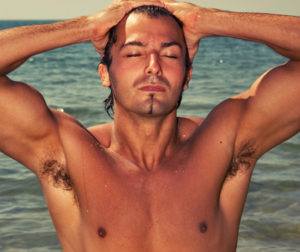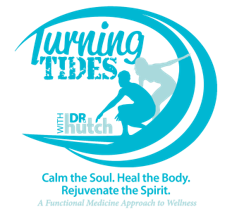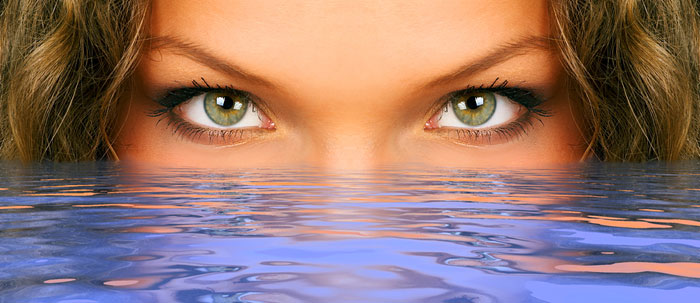Water – The most important nutrient in the human body
It just wouldn’t seem right to me if I didn’t write one of my first blog posts on the incredible benefits of water. Water is the most abundant chemical compound (H2O) on planet earth, so there is no wonder that it is the most important nutrient in the human body. Perhaps it is for this reason that so many are drawn towards the beauty of the ocean. Perhaps, ultimately it’s not the beauty as much as key elements within this magnificent body of water in which our bodies yearn for the most that are so attractive. Whatever the case, whether beauty or need there is one thing for certain the ocean is an incredible life-source for the human spirit, soul, and body and the body’s need for its largest element is unmatched.
There are many beneficial elements in the ocean that are contributive to good health, one of them being the obvious water. “In the human body water comprises from 75% body weight in infants to 55% in elderly and is essential for cellular homeostasis and life.”[i] Every organ in our body needs it; the brain, kidneys, digestive tract, blood, lungs, liver, stomach, muscle, bone, and skin. Maintaining proper hydration is the key to optimal health. One may think that it is only when the natural regulatory response to drink is when one becomes dehydrated. This is simply not true. The need for this critical mineral is thought to be at deficient levels way before a person feels the urge to drink. It is extremely important to stay hydrated at all times, especially during extreme heat, but equally important in the dead of winter too, or while working outside, physical activity or even while sitting on the beach soaking up the hot sunshine with your feet in the life giving water – You still need to drink it up. Think about it, the first thing the emergency room (ER) practitioners do is to hook you up to an IV to submerge the body with fluids shortly after you enter their doors. Simply grabbing any other beverage other than water takes the body an extra process to break-down the unneeded materials found in these other choices for absorption, not to mention many of them can make you dehydrated and add to caloric intake. Water is the only naturally occurring ZERO calorie beverage, that actually does a body good. So, please drink up!
Hydration: I plead the fifth in my earlier days. When it came to proper hydration I never took my husband’s urges seriously. My husband is an Army Ranger, so if you can imagine he knows all about staying hydrated and the importance thereof. He used to get so frustrated with me, mainly because I did not take his urge to drink water more seriously. But, now I do! So, when you’re at the beach, even though you are in the water always make sure to stay hydrated. Staying hydrated is a critical piece to good health, therefore being dehydrated can literally cause an imbalance of the entire eco-system and physical and mental symptoms can occur. I read several books a few years ago written by F. Batmanghelidj (i.e., Dr. Batman). He covers several named diseases and their relationship with the importance of maintaining hydration. For example in his book You’re Not Sick, You’re Thirsty, Dr. Batman states forty-six reasons why our bodies need water every day. I will list a few of them here:
- “Without water nothing lives
- Water is the main source of energy – It’s the cash-flow to the body.
- Water prevents DNA damage and makes its repair mechanisms more efficient –less abnormal DNA is made. (This may be important in epigenetics)
- Water increases the rate of absorption of important nutrients.
- Water clears toxic waste from different parts of the body and takes it to the liver and kidney to expel it.
- Water is the main lubricant in the joint spaces and helps prevent arthritis and back pain.
- Water is the best lubricating laxative and prevents constipation.
- Water is directly needed for the efficient manufacture of all neurotransmitters, including serotonin.
- Water helps to reduce stress, anxiety, and depression
- Water restores normal sleep rhythms
- Water helps reverse addictive urges, including those for caffeine, alcohol, and some drugs.”[ii]
Dehydration: Is the body’s worst enemy. Since water is needed for so many vital functions in the body. Maintaining balance breeds a happy and healthy body. In the case of dehydration let’s see what Dr. Batman in his book Your Body’s Many Cries for Water says about one possible aspect of how dehydration can impact health. “The brain uses electrical energy that is generated by the water drive of the energy-generating pumps. With dehydration, the level of energy generation in the brain is decreased. Many functions of the brain that depends on this type of energy become inefficient. We recognize this inadequacy of function and call it depression.”[iii] This is another great example of how simply being labeled as depressed is gross misrepresentation of an underlying root cause that simply goes without being considered in the current mental health system.
Too much water: Drinking too much water is a serious and deadly practice too. There is something called Polydipsia which is associated with mellitus and diabetes and Psychogenic Polydipsia is found in some people who are experiencing mental illness and/or in the developmentally disabled. We will talk on this topic at a later date.
Water – Our natural environment
 We spent the first nine months of our existence in the womb, splashing away as we twist and turned in the amniotic fluid that protected us from the outside world. Amniotic fluid also contains important nutrients, hormones, and antibodies. It also protects the baby from infections and other various hazards, but too much or too little can also present a problem just like too much or too little water that we need to be drinking every day. Water is a natural environment for us to grow and prosper in, but only if it is not contaminated or of bad quality.
We spent the first nine months of our existence in the womb, splashing away as we twist and turned in the amniotic fluid that protected us from the outside world. Amniotic fluid also contains important nutrients, hormones, and antibodies. It also protects the baby from infections and other various hazards, but too much or too little can also present a problem just like too much or too little water that we need to be drinking every day. Water is a natural environment for us to grow and prosper in, but only if it is not contaminated or of bad quality.
Wallace Nicoles in his book Blue Mind writes:
“Something about water draws and fascinates us. It is the most omnipresent substance on Earth…It provides more than half of our planet’s oxygen, approximately 332.5 million cubic miles of water on Earth –96 percent of it saline. It covers 70% of the earth’s surface, 95% is yet to be explored…In its mineral composition, the water in our cells is comparable to that found in the sea….We are inspired by water –hearing it, smelling it in the air, playing in it, walking next to it, painting it, surfing, swimming, or fishing in it…We know instinctively that being in water makes us healthier, happier, reduces stress, and brings us peace…. Like a child depends upon its mother, humans have always depended upon nature for our survival. And just as we intuitively love our mothers, we are linked to nature physically, cognitively, and emotionally.”[iv]
I love this quote from Blue Mind, what a wonderful example of how we fit into the natural environment of water. However, to touch on our internal environments needs here are a few suggestions that may help you remember to drink more water.
- The rule of thumb for adequate water intake is ½ of your body weight in ounces. An example of this would be if you weighed 150lbs then you would need to drink 150/2 = 75 oz of water. (More if you are engaging in strenuous activities and/or out in the weather).
- A gallon jug is 128 ounces. If you keep your water in a gallon jug it is important to keep the plastic jug in a cool place. Otherwise, if left in heat the toxins from the jug can seep into the water. I prefer a glass container.
- More water is needed if an increase need for fiber is required in the diet
- Evaluate urine color. If your urine is clear, you’re good. If your urine is yellow you need to drink more fluids. If your urine is dark yellow or brownish you need to drink more water now. If your urine is purple, brown, red, orange, green and/or cloudy you need to be evaluated by a medical doctor to rule out any potential infections or dysfunction in organ systems.
- If not water alone, then at least consider non-caffeinated and non-alcoholic choices
- Can’t do water? Then initially try infusing water with things like watermelon, cucumbers, fresh mint, and oranges. It’s really easy, just pour some fresh water (I prefer alkaline water) in a container (preferably glass) and add your favorite herbs, fruits, and/or vegetables. Like: Lime, ginger root, and basil, lemon and thyme, or cucumber+lime+mint+strawaberries or watermelon.
Therapeutic landscapes – Healthy Blue Spaces
 “Swimming stretches my body beyond its earthly limits, helping to soothe every ache and caress every muscle. But it’s also an inward journey, a time of quiet contemplation, when, encased in an element at once hostile and familiar, I find myself at peace, able – and eager to flex my mind, imagine new possibilities, to work things out without the startling interruptions of human voices or modern life. The silence is stunning.” ~ Lynn Sherr[v]
“Swimming stretches my body beyond its earthly limits, helping to soothe every ache and caress every muscle. But it’s also an inward journey, a time of quiet contemplation, when, encased in an element at once hostile and familiar, I find myself at peace, able – and eager to flex my mind, imagine new possibilities, to work things out without the startling interruptions of human voices or modern life. The silence is stunning.” ~ Lynn Sherr[v]
The ocean is considered a healing blue space. Blue spaces are recognized as being calm and peaceful. A place to unwind, relax and let go of the troubles of life. In one blue space article I located it describes how emerging literature on swimming activities such as diving, surfing and swimming produces an emotional encounter between the swimmer and the ocean, both on and under the water. It is thought that a positive effect was had on the individual while in their blue space and showed to have a profound impact on their emotions, sensations, atmospheres, and feelings, collectively, as they arise out of a relational encounter of such places. Some subjects in this article state how their own encounters with the water helped build resilience in the maintenance and recovery of their health. One relevant piece of their recovery process was not just the ability to swim in the open sea, but the habits and companionship support they experienced while there.[vi] This makes me think of the importance of forming good versus bad habits like many forms around food and other addictive substances. Habits in the case of living a healthier lifestyle are vitally important to longevity, but in the case of bad habits and customary rituals practiced in bad choices the benefits, in the long run, are detrimental to life in general. In addition, the component of companionship that was experienced in the review paper is also a known vital piece in the recovery of addictive and neurobiological behaviors. Nevertheless, the lessons and experiences learned in the blue places – like being at the ocean can offer so many wonderful benefits to the soul. Create a community of like minded people who are on a quest to live healthier, happier and longer lives. Create your own community, even if you don’t live at the beach, perhaps the lake, river or pool. Indulge yourself in the therapeutic landscape of the ocean. Do this in the community so you can begin to connect with others of like mind and what is necessary for your own life.
In a study by the University of Exeter in the UK the researcher’s states “exercise can lower the risk of obesity, diabetes, heart disease and depression, and plays an important role in keeping people healthy. The recent findings show people living near the coast are healthier than those living inland; perhaps the higher levels of healthier people are due from the increased physical activity.”[vii] The beach is for lounging, but it is also a wonderful place to be active too.
I’ve read in several places where swimming in sea water can enhance the immune system, boosts circulation and hydrate the skin; along with reducing physical and emotional struggles. I know salt water is rich in many nutrients; such as magnesium, calcium, salt, potassium, among others. My own experience, in general, is that I’ve seen many days where being at the ocean simply offered food to my soul, fresh air to my lungs and rejuvenated a beat-up and broken spirit. Ocean time provides a time of relaxation, fellowship with family and friends and a fun filled day of activities. So, whether you are basking by the sea, drinking H2O, floating in a life of luxury, diving to the deepest depths, or riding on the waves just know water is man’s best and most nutrient dense element found and it truly does the spirit, soul, and body good!
[i] Popkin, B. M., D’Anci, K. E., & Rosenberg I. H.(2010). Water, Hydration and Health. Nutrition Review. 68(8):439-458. doi:10.1111/j.1753-4887.2010.00304.x.
[ii] Batmanghelidj, F. (2003). You’re not sick, you’re thirsty! Water for health, for healing, for life. Warner Books: New York, NY. pp. 32-5.
[iii] Batmanghelidj, F. (1997). Your body’s many cries for water. You are not sick you are thirsty! Global Health Solutions, Inc. Falls Church, VA. p. 56.
[iv] Nichols,W. J.(2014) Blue Mind: The surprising science that shows how being near, in, on, or under water can make you happier, healthier, more connected, and better at what you do. Little, Brown and Company. New York, NY. pp.8-11
[v] Sherr, L. (2012). Swim. Why We Love the Water. New York, NY. p.5
[vi] Department of Geography, Rhetoric House, Maynooth University, Maynooth, Co. Kildare, Ireland.(2017). Emotion, Space and Society: Swimming as an accretive practice in healthy blue space. ScienceDirect. 22. 43-51. http://dx.doi.org/10.1016/j.emospa.2016.12.001
[vii] University of Exeter. (2014, October 9). Coastal living boosts physical activity, study shows. ScienceDaily. Retrieved August 13, 2017 from www.sciencedaily.com/releases/2014/10/141009100934.htm

